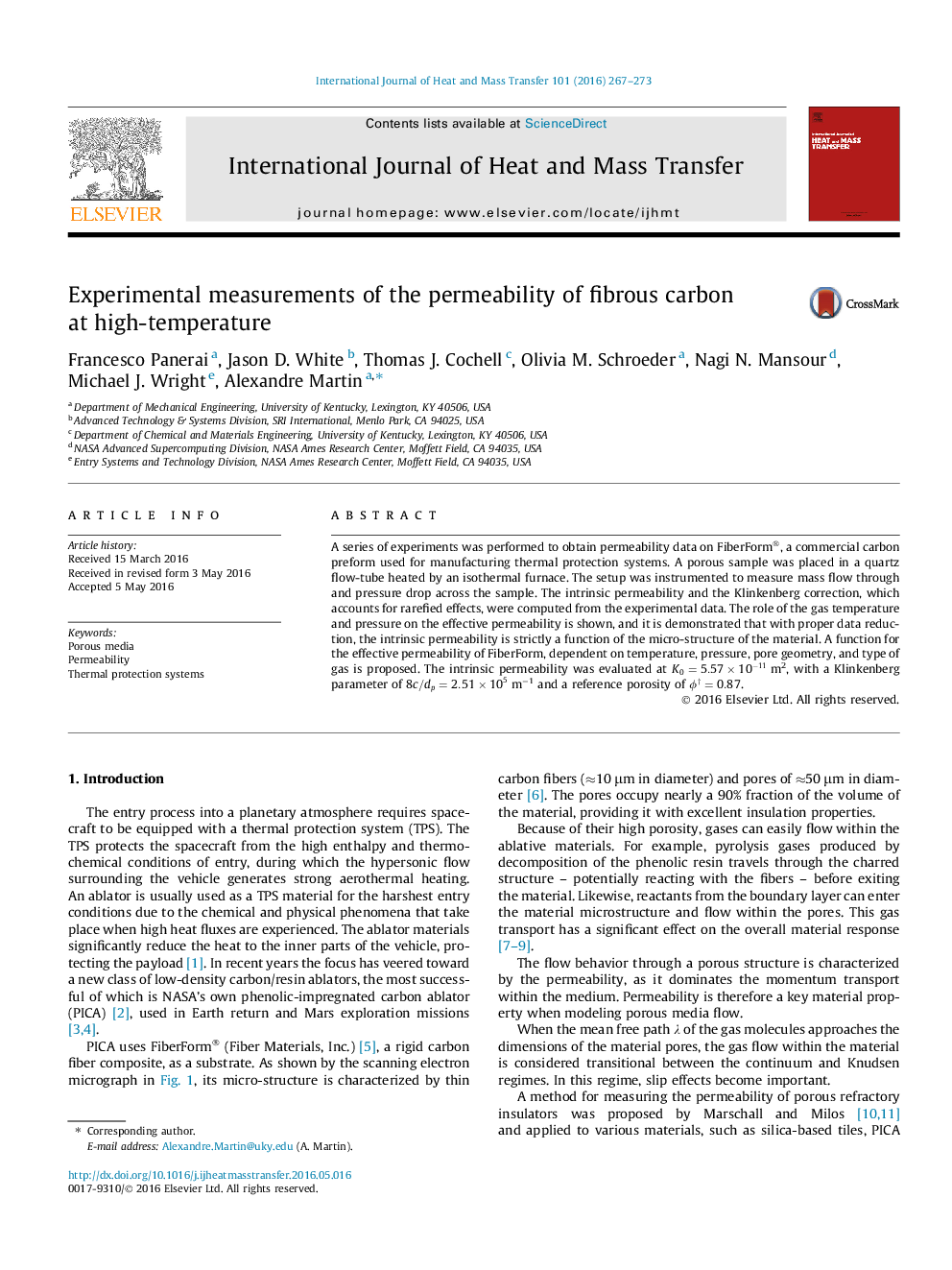| Article ID | Journal | Published Year | Pages | File Type |
|---|---|---|---|---|
| 7055211 | International Journal of Heat and Mass Transfer | 2016 | 7 Pages |
Abstract
A series of experiments was performed to obtain permeability data on FiberForm®, a commercial carbon preform used for manufacturing thermal protection systems. A porous sample was placed in a quartz flow-tube heated by an isothermal furnace. The setup was instrumented to measure mass flow through and pressure drop across the sample. The intrinsic permeability and the Klinkenberg correction, which accounts for rarefied effects, were computed from the experimental data. The role of the gas temperature and pressure on the effective permeability is shown, and it is demonstrated that with proper data reduction, the intrinsic permeability is strictly a function of the micro-structure of the material. A function for the effective permeability of FiberForm, dependent on temperature, pressure, pore geometry, and type of gas is proposed. The intrinsic permeability was evaluated at K0=5.57Ã10-11Â m2, with a Klinkenberg parameter of 8c/dp=2.51Ã105Â mâ1 and a reference porosity of Ïâ =0.87.
Related Topics
Physical Sciences and Engineering
Chemical Engineering
Fluid Flow and Transfer Processes
Authors
Francesco Panerai, Jason D. White, Thomas J. Cochell, Olivia M. Schroeder, Nagi N. Mansour, Michael J. Wright, Alexandre Martin,
